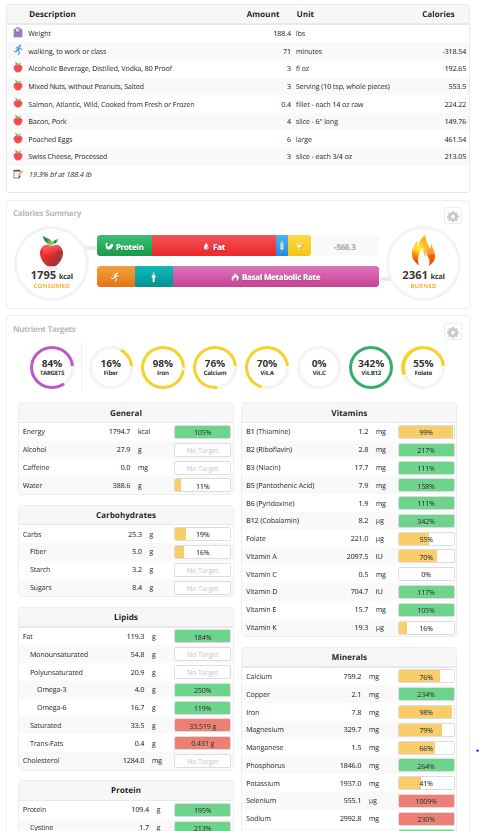Why You Should Donate Blood
I just wrestled with my excellent doctor to have her put in a request to have my serum ferritin measured in my yearly blood work. That most men have a gross overload of excess, highly reactive iron in their bodies that is having a multitude of deleterious effects: this is almost unknown not only among laymen, but among the professionals, too. This contributes to higher rates of heart disease, arrhythmia, cancer, you name it. Read the following links and weep for what the medical establishment has not shared with you.
Long intro, but here are the basics. This will require reading some links. The bad news is that this is a serious problem, causing increased heart disease and cancer. The good news is that there is an easy way to remediate it. Usually for free, by giving blood. Additional reasons for giving blood, beside the altruistic ines, is that the production of younger cells reduces the viscosity and likelihood of clot formation in this hydrodynamically active substance; this may be much of blood donation's net beneficial effect.
Link one: to the John the Baptist of iron toxicity, Bill Sardi. Here is a post from more than a decade ago. The data have just gotten stronger.
https://archive.lewrockwell.com/sardi/sardi65.html
When we're growing, we need iron for many developmental purposes. We take it in, and we use it. Once we stop growing, if we are women, we lose about 30 mg of iron monthly menstruating. If we are men, we don't. Average iron net accumulation is around 1 mg/day. If you accumulate significant excess iron (i.e., your hematocrit/hemoglobin levels are always pegging or above the upper limit), the iron begins to be stored in your organs. Which is seriously bad. Think "rusting" (oxidation) where you don't need it, for a simplistic way to visualize it.
Most of our normal iron stores, about 80%, is in the hemoglobin in our red blood cells. If we continue to take in iron, it begins to be stored in the body, transported about through the ferritin molecules. Hence the utility of measuring serum ferritin as a glimpse into the whole-body iron loading.
http://joshmitteldorf.
You can take inositol hexaphosphate, IP6, which is available from Amazon. It chelates excess iron and is useful if you cannot donate blood per the Red Cross guidelines. But the heavy gun in eliminating excess iron is blood donation. And it's good for others and then give you Fritos, sandwiches, and other treats. And the donation/blood rebuild processes create a caloric deficit of at least 600 calories. Such a deal! You can consume those Fritos guilt-free.
Another layperson's link:
https://www.leanmachine.net.au/catalog/articles/ferritin.php
If you Google/search for "iron ferritin inositol phosphate" you will also come up with a multitude of scientific studies all saying what I've said above. The vast preponderance of results point toward anemia and increasing serum ferritin, because that's what in doctors' minds, but that's not really our problem, for most of us.
Lastly, if you've read this far, please see what Sardi has to say on related topics:
http://www.resveratrolnews.com/three-pathways-to-superlongevity/1394/
Long intro, but here are the basics. This will require reading some links. The bad news is that this is a serious problem, causing increased heart disease and cancer. The good news is that there is an easy way to remediate it. Usually for free, by giving blood. Additional reasons for giving blood, beside the altruistic ines, is that the production of younger cells reduces the viscosity and likelihood of clot formation in this hydrodynamically active substance; this may be much of blood donation's net beneficial effect.
Link one: to the John the Baptist of iron toxicity, Bill Sardi. Here is a post from more than a decade ago. The data have just gotten stronger.
https://archive.lewrockwell.com/sardi/sardi65.html
When we're growing, we need iron for many developmental purposes. We take it in, and we use it. Once we stop growing, if we are women, we lose about 30 mg of iron monthly menstruating. If we are men, we don't. Average iron net accumulation is around 1 mg/day. If you accumulate significant excess iron (i.e., your hematocrit/hemoglobin levels are always pegging or above the upper limit), the iron begins to be stored in your organs. Which is seriously bad. Think "rusting" (oxidation) where you don't need it, for a simplistic way to visualize it.
Most of our normal iron stores, about 80%, is in the hemoglobin in our red blood cells. If we continue to take in iron, it begins to be stored in the body, transported about through the ferritin molecules. Hence the utility of measuring serum ferritin as a glimpse into the whole-body iron loading.
http://joshmitteldorf.
You can take inositol hexaphosphate, IP6, which is available from Amazon. It chelates excess iron and is useful if you cannot donate blood per the Red Cross guidelines. But the heavy gun in eliminating excess iron is blood donation. And it's good for others and then give you Fritos, sandwiches, and other treats. And the donation/blood rebuild processes create a caloric deficit of at least 600 calories. Such a deal! You can consume those Fritos guilt-free.
Another layperson's link:
https://www.leanmachine.net.au/catalog/articles/ferritin.php
If you Google/search for "iron ferritin inositol phosphate" you will also come up with a multitude of scientific studies all saying what I've said above. The vast preponderance of results point toward anemia and increasing serum ferritin, because that's what in doctors' minds, but that's not really our problem, for most of us.
Lastly, if you've read this far, please see what Sardi has to say on related topics:
http://www.resveratrolnews.com/three-pathways-to-superlongevity/1394/


Next will come resveratrol, caloric restriction, and Vitamin D3.
ReplyDelete